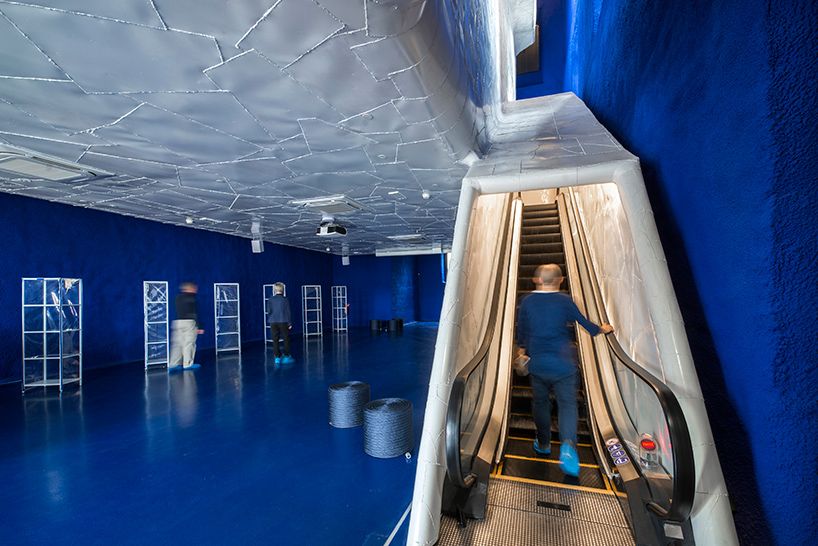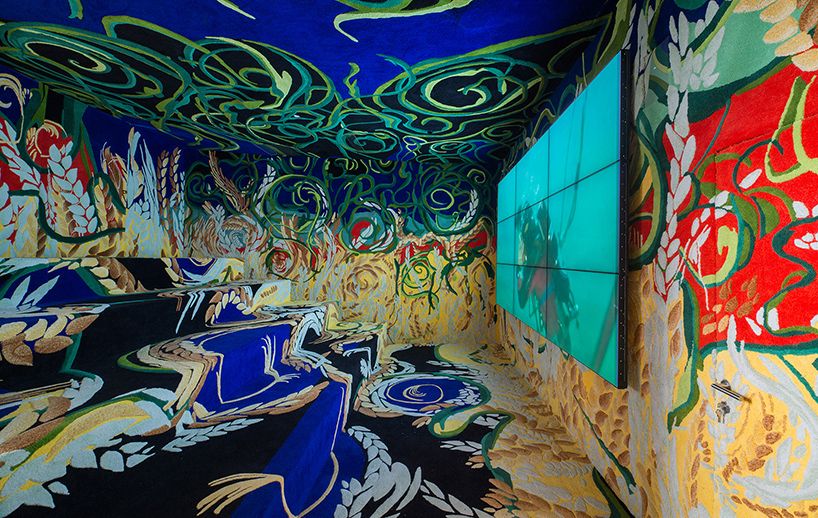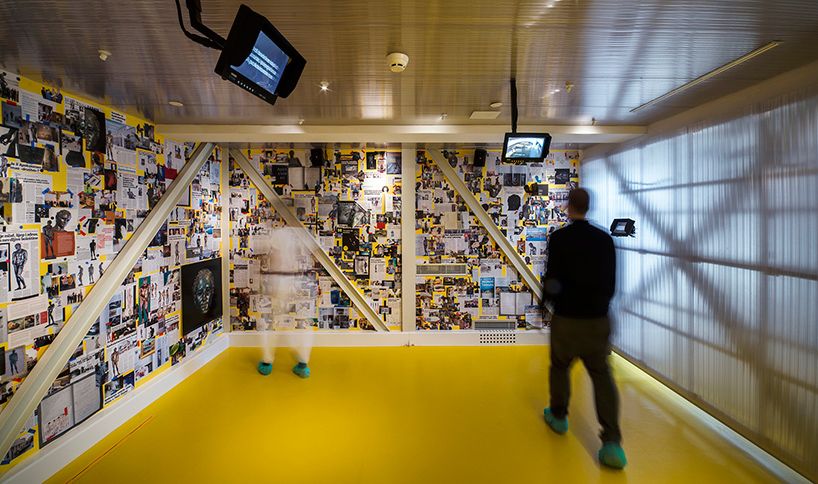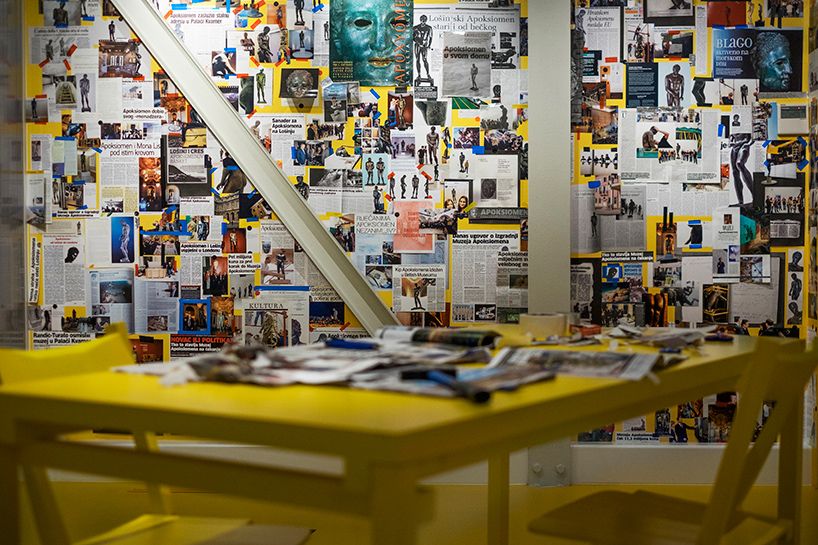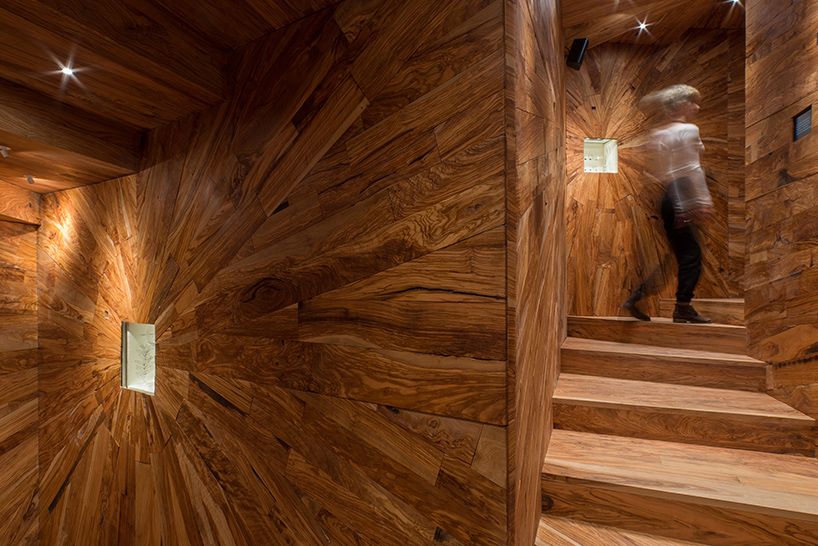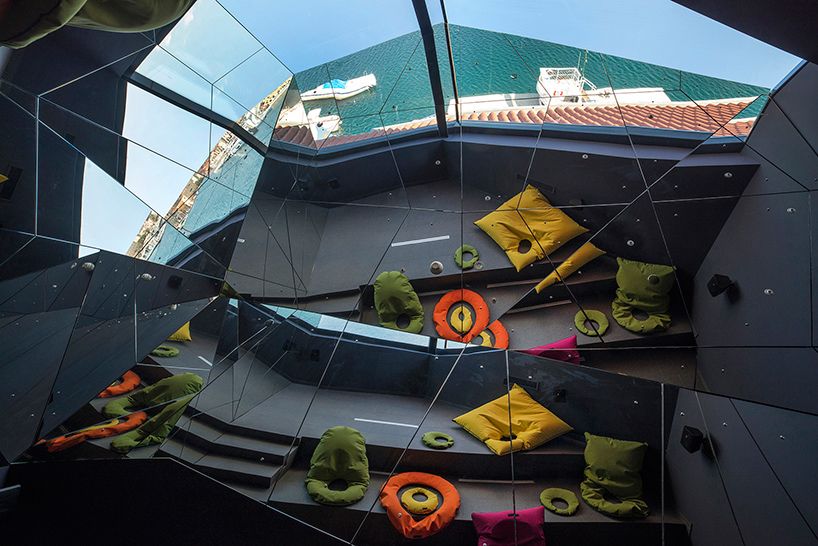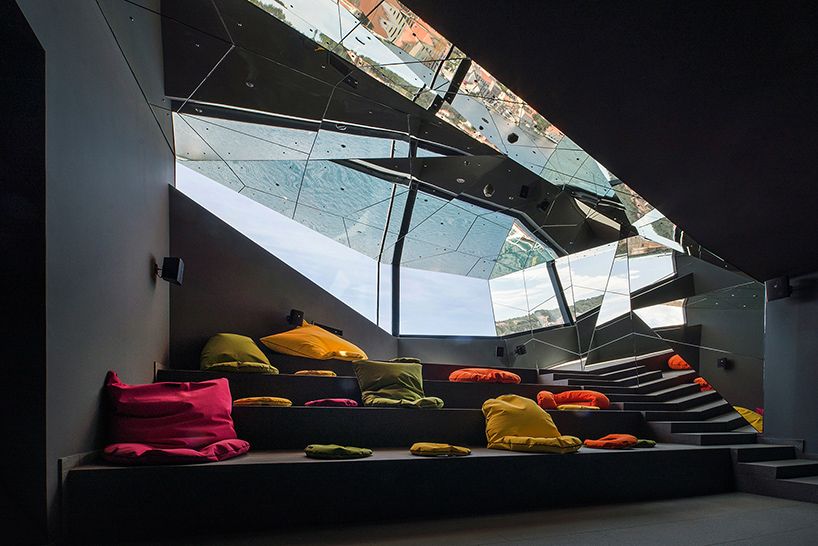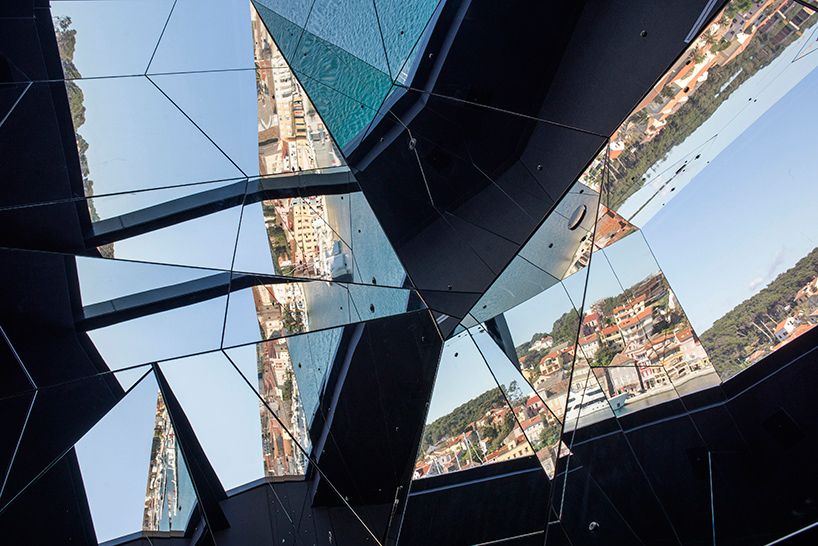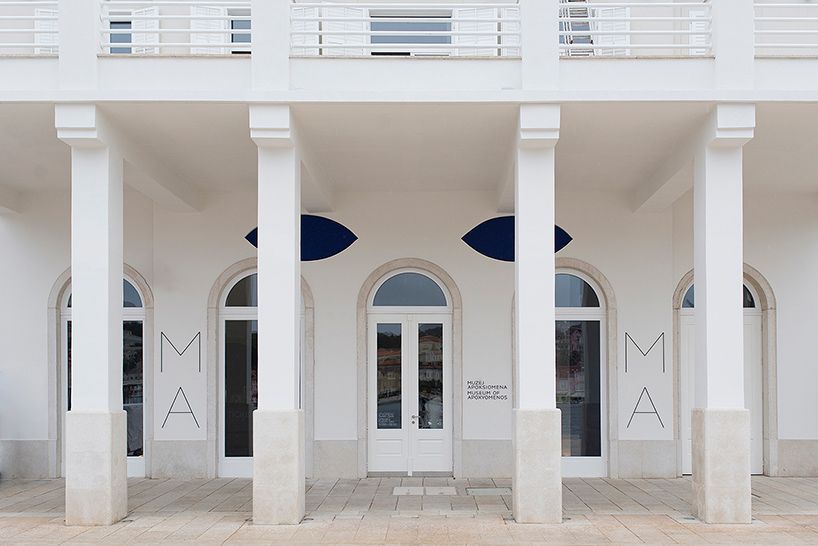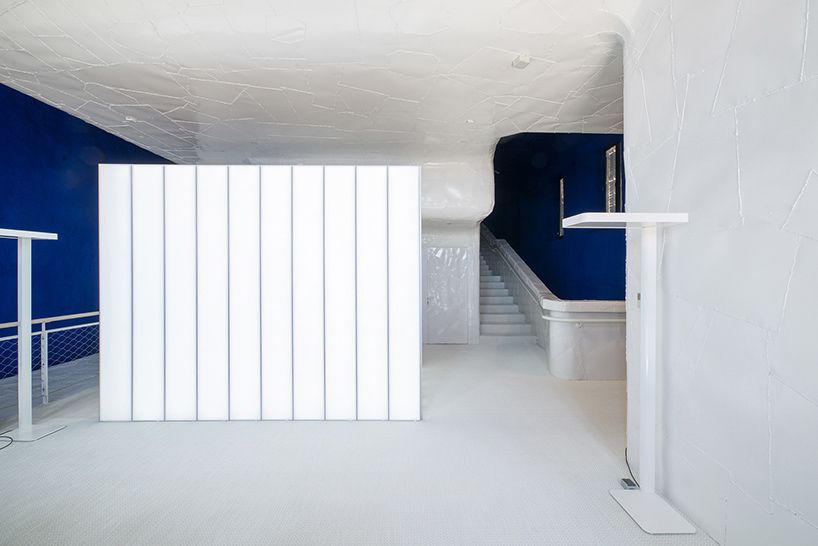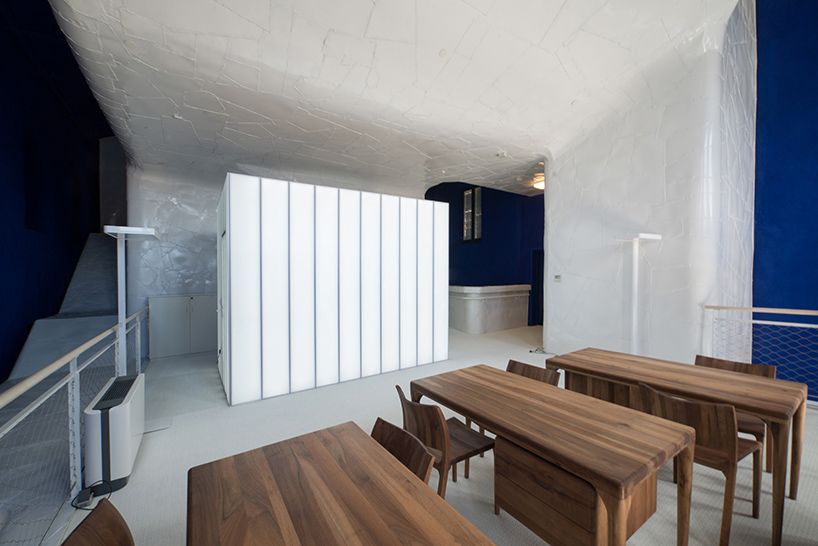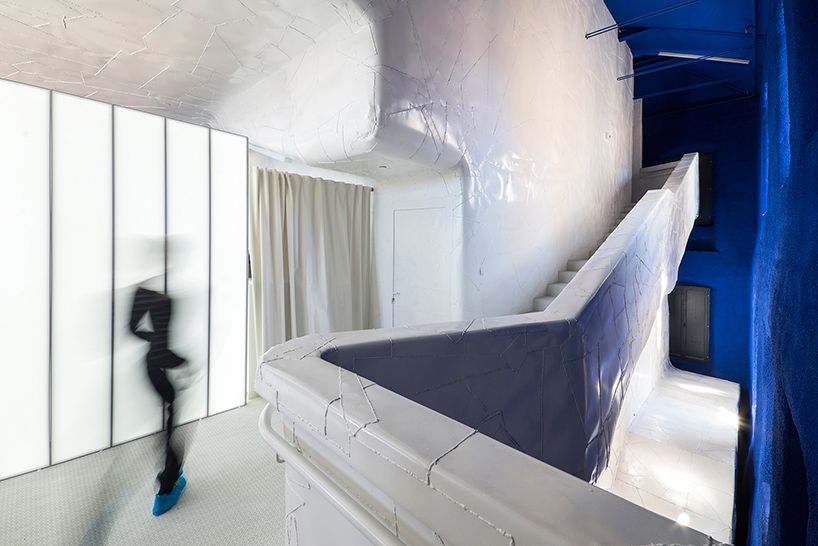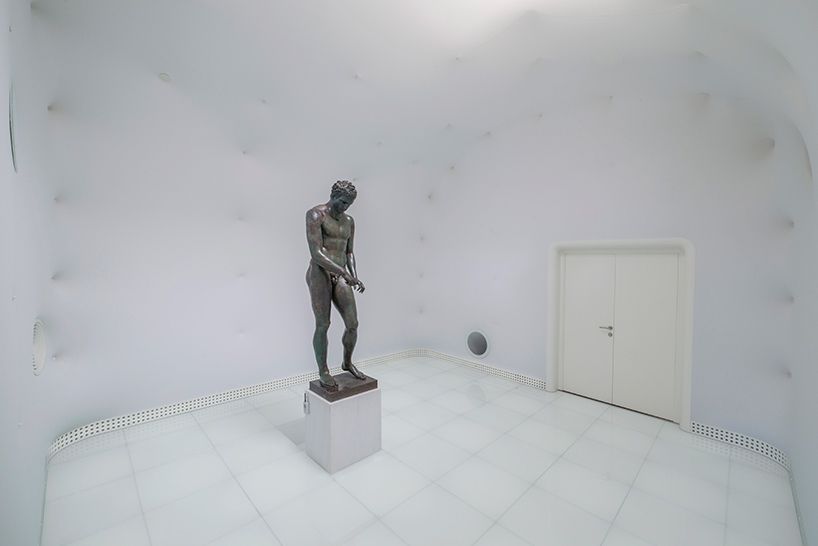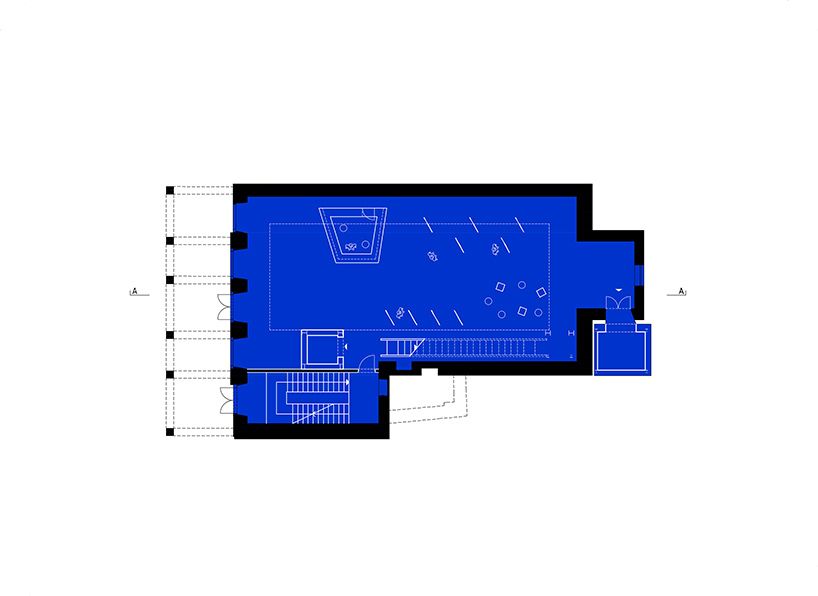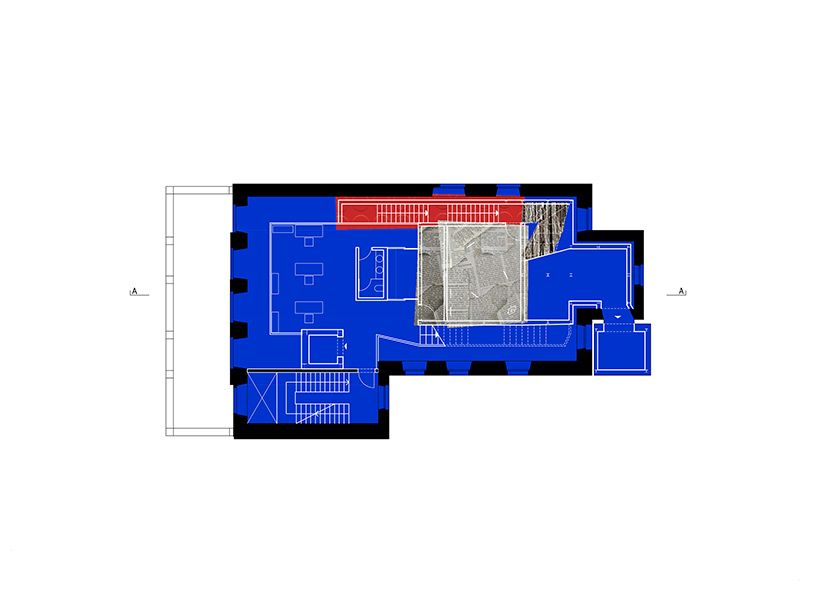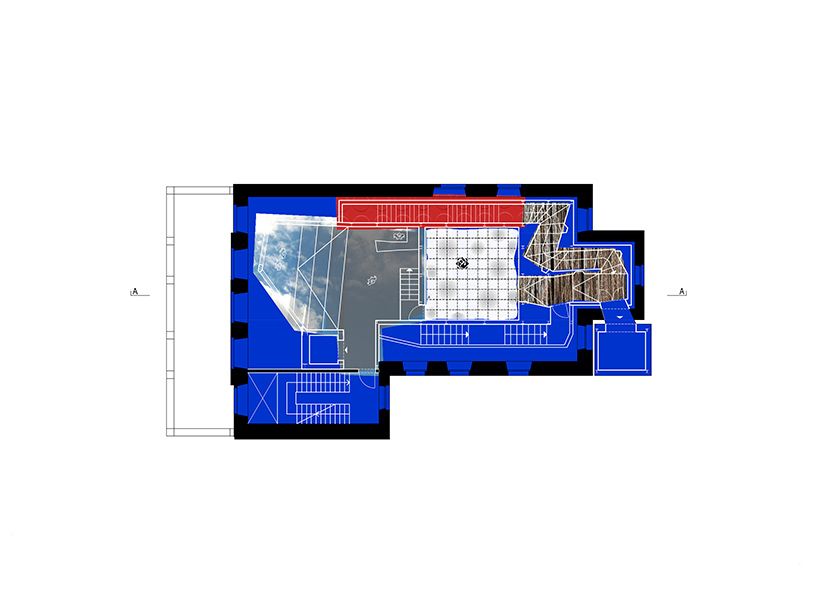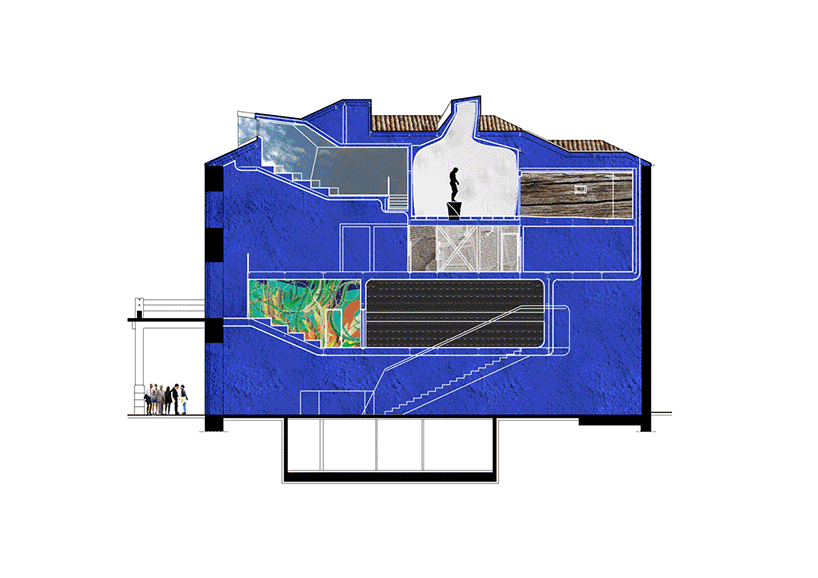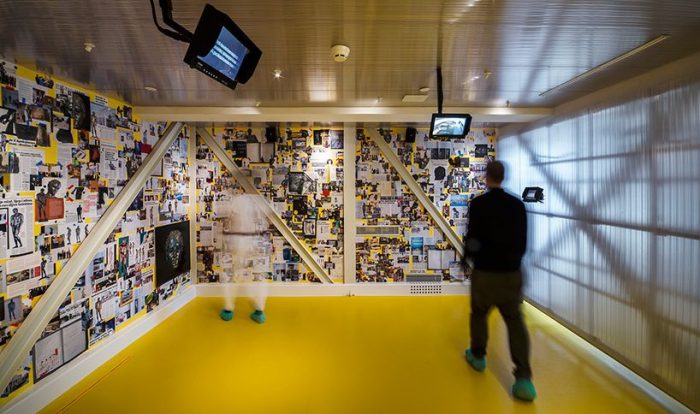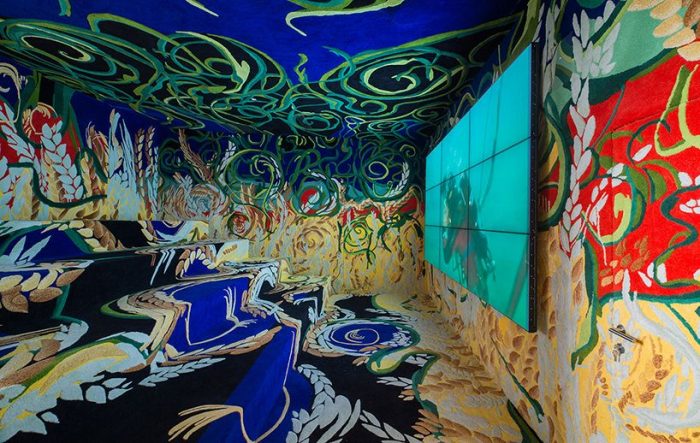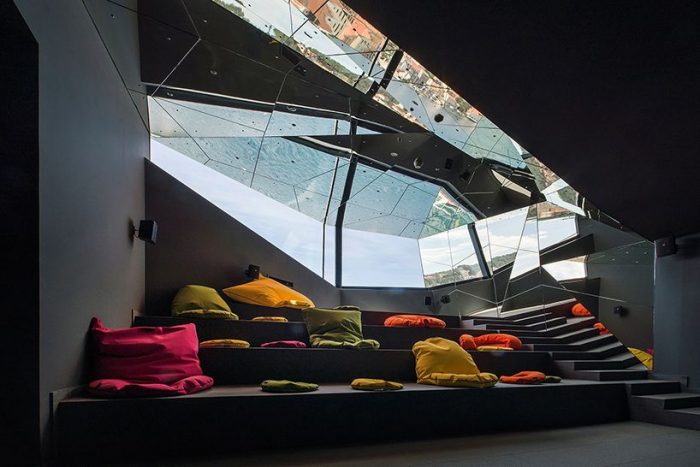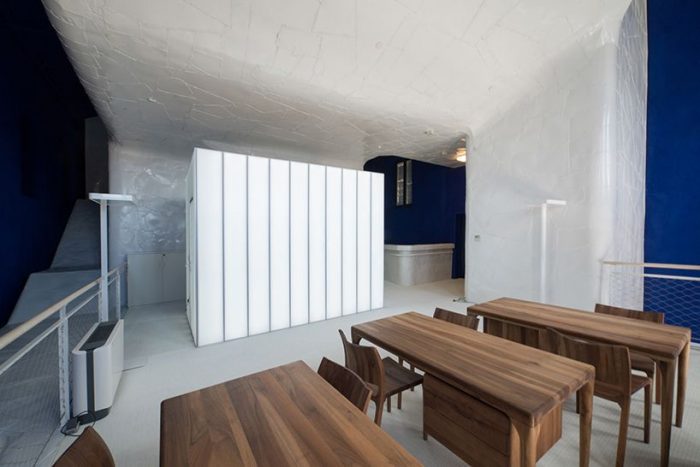The Museum of Apoxyomenos
A very well-preserved and beautifully crafted Greek original representing an athlete scraping sweat and dust from his body (a subject-matter known as Apoxyomenos) gave birth to a new museum in the town of Mali Lošinj, Croatia. The valuable sculpture dates back to the 2nd/1st century BC and was found in 1996 on the seabed in the town’s vicinity.
The newly established institution will become the sculpture’s new home after it had toured internationally and finally returned. The museum’s silhouette has been embedded in the old Kvarner Palace’s architectural context and redefines its exterior walls and roof. The interior, which was conceived by Idis Turato, offers a nine stage spatial ceremonial, unfolding across differently arranged museum halls and passage ways. It ends with the bronze statue situated in a white room and an immersive kaleidoscopic room.
On the ground floor, the visitors enter the museum’s atrium, where they observe the enchanting blue walls of the old palace with floating white constructs to invoke associations with the sculptural quality.
Escalators lead them to the first hall of the accompanying exhibition, where black industrial rubber rounded at the corners embraces the room’s surfaces to foster attention and create a feeling of continuity. Here, the story of the sculpture is presented, including its discovery and restoration.
Then, the visitors cross a small amphitheater clad in a hand-woven tapestry of soft merino wool. They are invited to touch, sit, lie down and relax in this colorful room
A red tube staircase leads them to a yellow multimedia room, offering them a humorous experience with the statue, which is treated as a media phenomenon. Visitors are encouraged to “follow” the celebrity statue on social networks and observe various documents regarding its very step.
A sinuous space clad in wood and called “the olive passage”, leads them to the white chamber where the archaeological find is exhibited. The passage is a perceptional installation dominated by olive fragrances and showing Mediterranean flora related to the artifact’s geographical and historical context.
The white room with the statue inside features a membrane made of translucent and elastic textile to diffuse light and dematerialize the space.
The kaleidoscopic room that follows immediately after, occupies the very top of the building and presents spectacular reflections of Mali Lošinj’s cityscape.
Ceiling and walls are clad in mirrors to reflect the town’s harbor with a relaxation surfaces and an open view to the sculpture provided in the room.
By: Sabina Karleva
